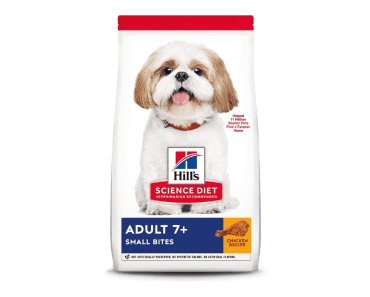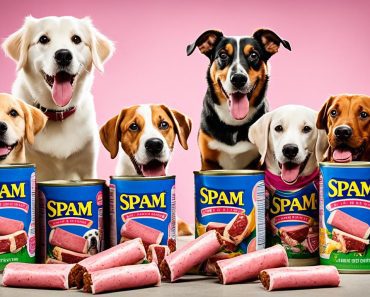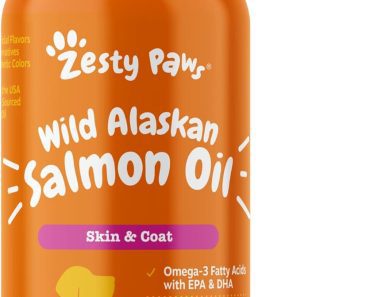Before sharing brie cheese with your dog, it’s important to understand its safety for dogs. Brie cheese is non-toxic to dogs but is high in saturated fat. It is recommended to consult with a vet before feeding brie cheese to your dog to ensure their overall health.
So, can dogs eat brie cheese? Let’s explore the topic further.
Can Dogs Eat Brie Cheese? Yes, but should be given with caution.
- Brie cheese is non-toxic to dogs but should be given in moderation.
- Consult with a vet before feeding brie cheese to your dog.
- Brie cheese is high in saturated fat, so it’s important to monitor your dog’s overall health.
- There are alternative healthier treats available for dogs that can provide similar nutritional benefits.
- Avoid giving dogs brie cheese with garlic, onion, excessive salt, or other spices.
What Is Brie Cheese?
Brie cheese is a type of double cream cheese made from cow’s milk. It is a soft cheese with a hard rind and is typically 60-75% butterfat. Brie cheese is made in small wheels and has a distinct taste. It falls under the category of softer cheeses.

Can Dogs Have Brie Cheese?
While brie cheese is safe for dogs to eat in moderation, it’s important to exercise caution. Brie cheese is delicious, but it shouldn’t be given to dogs in large quantities due to its high saturated fat content. Dogs that consume excessive amounts of fat may experience weight gain and other related health issues.
If you want to treat your furry friend, it’s advisable to offer healthier alternatives. Instead of sharing brie cheese, you can give your dog dried fish or dog-friendly training treats. These options are not only tasty but also provide the nutritional benefits that dogs need.
Remember, while brie cheese isn’t inherently toxic to dogs, it’s crucial to monitor their fat intake to keep them healthy and avoid any potential complications. As always, consult with your veterinarian before introducing any new foods to your dog’s diet to ensure their overall well-being.
Can Dogs Eat Brie Rind?
The rind around a wheel of brie cheese, made from natural white mold called Penicillium camemberti, is safe and edible for dogs. However, it is important to give dogs brie rind in small quantities to prevent any potential digestive issues. Feeding dogs a large amount of brie rind can lead to upset stomach, diarrhea, or gas. To ensure your dog’s well-being, it is advised to monitor their reactions to new food and offer only small amounts at first.

When introducing brie rind to your dog, it is crucial to be aware of their individual sensitivities and dietary needs. Some dogs may have difficulty digesting certain foods, so it’s always recommended to consult with your veterinarian before adding any new ingredients to your dog’s diet.
Is Brie Cheese Bad For Dogs?
Brie cheese is a delicious delicacy that many of us enjoy. However, when it comes to our furry friends, we need to exercise caution. While brie cheese is not inherently bad for dogs, it should be consumed in moderation to prevent any potential health issues.
One of the main concerns with feeding dogs brie cheese is its high saturated fat content. Too much fat in a dog’s diet can lead to weight gain and obesity. These conditions can increase the risk of other health problems, such as heart disease and joint issues.
Furthermore, certain ingredients commonly found in brie cheese can be harmful to dogs. Garlic and onion, for example, can be toxic and damage a dog’s red blood cells. Excessive salt or spices can also cause digestive issues and lead to dehydration.
If your dog shows signs of lactose intolerance or has specific dietary restrictions, it’s best to avoid feeding them brie cheese altogether. Dogs that are lactose intolerant lack the necessary enzyme to digest lactose, a sugar found in milk products like brie cheese. This can result in digestive upset, including bloating, gas, and diarrhea.
As responsible pet owners, it’s essential to prioritize our dogs’ health and well-being. While sharing a small piece of brie cheese as an occasional treat may not harm your dog, it’s important to consult with your veterinarian before introducing any new food into their diet.
Additional Tips for Feeding Brie Cheese to Dogs:
- Offer brie cheese in small, controlled portions to prevent overconsumption.
- Avoid brie cheese with added ingredients like garlic, onion, or excessive salt.
- Monitor your dog’s reaction to brie cheese, especially if it’s their first time trying it.
- If you’re unsure about feeding brie cheese to your dog, opt for healthier treats specifically formulated for dogs.
Remember, a well-balanced and nutritious diet is crucial for your dog’s overall health and longevity. When it comes to brie cheese, moderation is key.
Conclusion
After assessing the safety of brie cheese for dogs, it is clear that while it is generally safe for dogs to consume, it should be given as an occasional treat in small quantities. The high saturated fat content in brie cheese can contribute to weight gain and other health issues in dogs, so it is important to exercise caution.
If you are considering sharing brie cheese with your furry friend, it is always best to consult with a veterinarian beforehand. They can provide personalized advice based on your dog’s specific dietary needs and health conditions.
While brie cheese may be tempting to offer your dog, there are alternative healthier treats available that can provide similar nutritional benefits without the potential risks associated with brie cheese. Dried fish or dog-friendly training treats are great options to consider as they are often lower in fat and more suitable for regular consumption.






